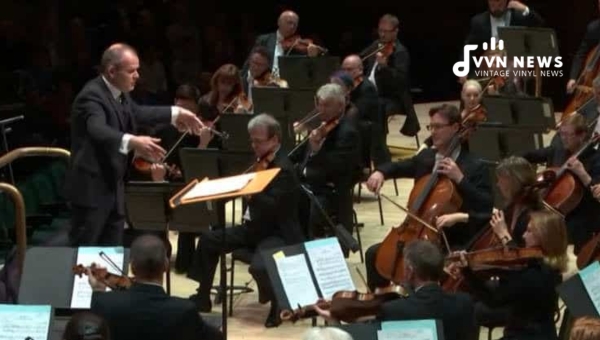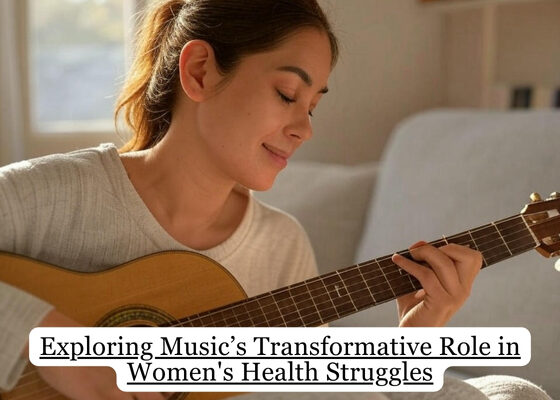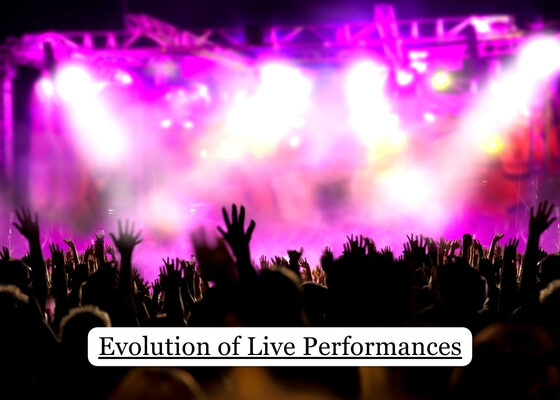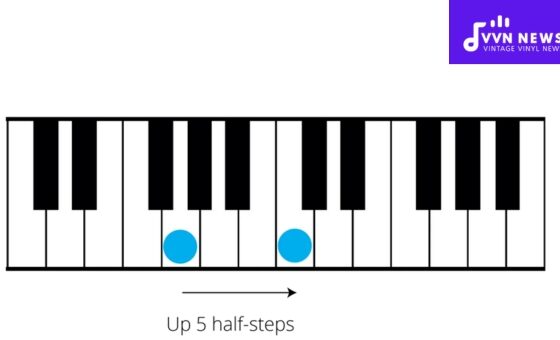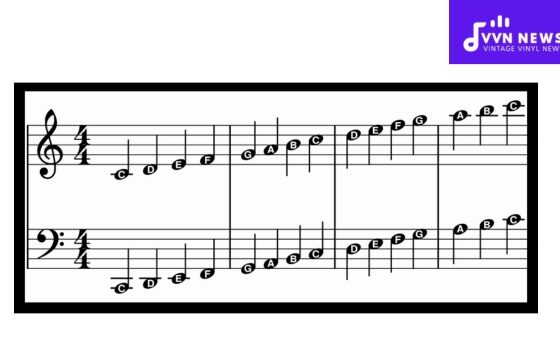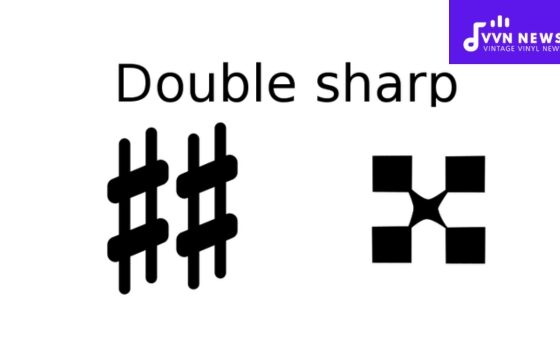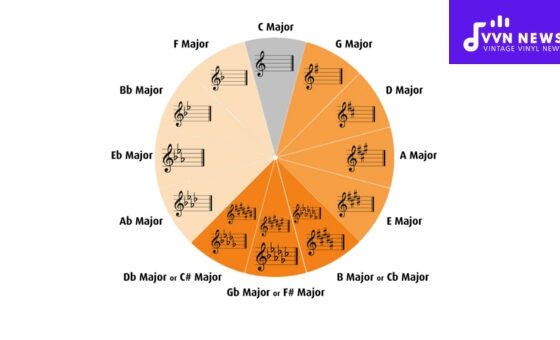Music is a universal language that knows no borders and has the power to evoke an array of sentiments. Take a moment and consider what is program music?
To put it succinctly, program music refers to a type of composition designed to narrate a story, depict a scene, or describe an idea without the use of vocals or lyrics.
It’s an art that dips into the listener’s imagination, requiring one not just to hear but also feel and visualize.
When we think about program music, we typically picture symphonies or orchestral works. But it doesn’t stop there.
Program music can be found in nearly any genre, whether it’s classical with Beethoven’s ‘Pastoral Symphony’ which paints rural scenes through instrumental storytelling or modern-day movie scores using melodies to build tension or create ambiance.
Now that you have a basic understanding let’s delve into the intricacies of program music and its significance throughout history.
What Defines Program Music?
Program music can be defined as a genre that seeks to convey a narrative or depict scenes, characters, or events through musical composition.
It goes beyond the exploration of musical themes and forms, aiming to immerse the listener in a specific story or concept.
This genre emerged during the Romantic era of the 19th century and allowed composers to experiment with new ways of expressing themselves through sound.
Program music takes inspiration from various sources such as literature, art, historical events, and natural phenomena.
It utilizes different compositional techniques to create a vivid sonic portrayal of these subjects, captivating and engaging the listener in a unique musical experience.
How Did Programme Music Evolve Historically?
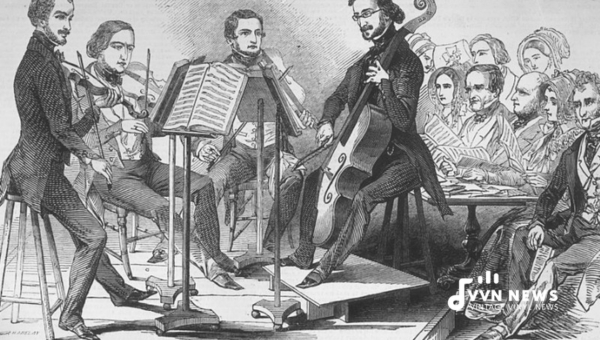
Program music has a rich and evolving history, spanning multiple centuries and musical periods. Let’s take a journey through time to explore how this genre developed and transformed over the years.
Renaissance Period
During the Renaissance period (approximately 1400-1600), composers primarily focused on vocal music, such as choral works and madrigals.
The concept of program music was not yet fully developed at this time, as the focus was on religious themes and expressing emotions through text rather than instrumental storytelling.
Baroque Period
In the Baroque period (approximately 1600-1750), instrumental music began to take on a more prominent role.
Composers like Jean-Baptiste Lully experimented with orchestral suites that featured dance movements inspired by mythological or pastoral themes.
While not explicitly program music, these compositions laid the groundwork for future developments in musical storytelling.
The Classical Period
The Classical period (approximately 1750-1820) saw a shift towards more structured forms of instrumentation, with composers like Wolfgang Amadeus Mozart and Joseph Haydn at its forefront.
Program elements started to emerge in certain compositions during this time, such as Haydn’s “The Creation,” which depicts the story of creation through music. It wasn’t until the Romantic era that program music truly flourished.
Also Read: B Flat Minor Pentatonic Scale [Create Emotive Music In Minutes]
The Romantic Period
The Romantic period (approximately 1820-1900) proved to be the golden age for program music.
Composers sought to evoke complex emotions and tell stories through their compositions. One notable example is Ludwig van Beethoven’s Symphony No. 6, also known as the “Pastoral Symphony.”
This symphony depicts scenes from nature, painting vivid musical landscapes that transport listeners to tranquil meadows and thunderous storms.
Composer Richard Strauss emerged as one of the pioneers of program music during the late Romantic era with his symphonic poems.
“Also Sprach Zarathustra” transformed Friedrich Nietzsche’s philosophical work into a powerful orchestral piece, immortalized in popular culture by its use in Stanley Kubrick’s film, 2001: A Space Odyssey.
The Twentieth Century
The twentieth century brought further experimentation and diversification to program music. Composers like Igor Stravinsky challenged traditional structures and embraced avant-garde techniques.
In Stravinsky’s ballet, “The Rite of Spring,” the music represents a pagan ritual and showcases dissonance, irregular rhythms, and unconventional harmonies.
In addition to symphonic works, program music also found its place in film scores. Composers like John Williams crafted intricate musical narratives for movies such as Star Wars and E.T. the Extra-Terrestrial, enhancing the on-screen storytelling through their captivating compositions.
Throughout history, program music has continued to evolve as composers explore new themes and adopt contemporary musical techniques.
From its early roots in the Renaissance period to its blossoming in the Romantic era and beyond, this genre has left an indelible mark on the world of classical music.
Notable Examples of Programme Music
Throughout music history, there have been many notable examples of program music that have left a lasting impact on the genre and the world of classical music as a whole.
These compositions have captivated audiences with their ability to evoke emotions, tell stories, and create vivid sonic landscapes. Here are a few noteworthy examples:
Symphony Fantastique by Hector Berlioz
Hector Berlioz’s Symphony Fantastique stands as one of the most iconic and influential works in the program music genre.
Composed in 1830, this five-movement symphony tells the story of an artist’s opium-induced hallucinations fueled by unrequited love.
Each movement represents a different episode in the artist’s tortured imagination, from vivid dreams to terrifying nightmares.
Peer Gynt Suite by Edvard Grieg
Although primarily known for its famous melodies such as “Morning Mood” and “In the Hall of the Mountain King,” Edvard Grieg’s Peer Gynt Suite is an exemplary showcase of program music.
Inspired by Henrik Ibsen’s play Peer Gynt, this suite musically portrays scenes and characters from the narrative, taking listeners on a journey through Norwegian folklore and mythology.
Also sprach Zarathustra by Richard Strauss
Richard Strauss’ symphonic poem Also Sprach Zarathustra is instantly recognizable due to its iconic opening fanfare famously used in Stanley Kubrick’s film 2001: A Space Odyssey.
Based on Friedrich Nietzsche’s philosophical novel of the same name, this composition represents various aspects of human existence, exploring themes of creation, nature, and spirituality.
Also Read: B Minor Pentatonic Scale [Inject Your Music With Dramatic Flair]
The Sorcerer’s Apprentice by Paul Dukas
Known for its inclusion in Disney’s film Fantasia, The Sorcerer’s Apprentice is a captivating orchestral poem composed by Paul Dukas.
Inspired by Johann Wolfgang von Goethe’s ballad of the same name, it tells the story of an apprentice who attempts to use magic to make his chores easier, only to lose control and face the consequences.
The Moldau by Bedrich Smetana
Bedrich Smetana’s symphonic poem The Moldau is a musical representation of the Vltava River, considered the national river of the Czech Republic.
Through a series of musical episodes, Smetana portrays various landmarks and scenes along the river’s course, from its humble origins in the mountains to its majestic flow through Prague.
These are just a few examples of program music that showcase the immense creativity and storytelling abilities of composers.
Each composition immerses listeners in a unique narrative or conceptual framework, offering an enthralling and vivid musical experience that transcends traditional forms.
Program music continues to inspire contemporary composers who seek to push boundaries and explore new realms of sonic storytelling.
Also Read: C Sharp Major Pentatonic Scale [Crisp & Clear Tones For Your Music]
How Does Programme Music Differ from Absolute Music?
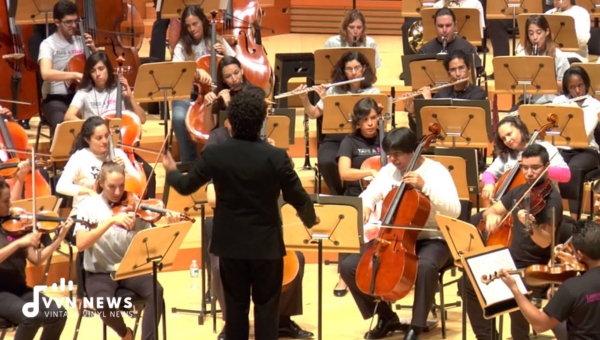
Program music and absolute music are two distinct genres within classical music. While both have their unique characteristics, they differ in terms of their purpose, structure, and approach to composition.
Purpose and Narrative
- Program music: The primary aim of program music is to evoke specific emotions or depict a narrative or concept. It seeks to transport the listener into a world of imagination and storytelling by using musical elements to convey a particular theme or scene.
- Absolute music: In contrast, absolute music is focused solely on the exploration of musical ideas and forms without any specific narrative or extramusical inspiration. It exists for its own sake and invites the listener to appreciate the beauty of pure musical expression.
Structure and Composition
- Program music: One of the main distinguishing factors of program music is its reliance on extra-musical elements. Composers use various techniques such as leitmotifs, descriptive titles, orchestration choices, and specific musical themes to portray characters, events, or concepts.
- Absolute music: Absolute music, on the other hand, does not utilize these extra-musical devices. It explores musical themes purely through melodic lines, harmonies, rhythms, and formal structures like sonata forms or variations.
Listener Experience
- Program music: When listening to program music, the listener is encouraged to actively engage with the story or concept being portrayed. The evocative nature of these compositions allows listeners to develop a personal connection with the subject matter.
- Absolute music: With absolute music, listeners are invited to appreciate the intrinsic beauty of the musical language itself. This genre often leaves room for individual interpretation and emotional response based solely on the sounds heard.
While both genres have their merits and hold an important place in classical music history, program music offers an immersive experience that allows listeners to be transported into a world where sound tells a story.
On the other hand, absolute music enchants with its abstract nature, emphasizing the power of musical expression independent of any external references.
What Impact Has Programme Music Had on Modern Compositions?
Program music has had a significant impact on modern compositions, influencing composers and shaping the way they approach their works. Here are some key ways in which program music has left its mark:
Expansion of artistic expression
Program music broadened the horizons of artistic expression by allowing composers to tell stories, evoke emotions, and explore complex themes through music.
By breaking away from traditional forms and structures, composers were able to experiment with new harmonic progressions, unique instrumentation choices, and unconventional compositional techniques.
Enhanced storytelling capabilities
With program music, composers gained the ability to convey narratives without relying on words or visuals alone.
By leveraging the power of musical elements such as dynamics, tempo changes, and thematic development, they could paint vivid sonic landscapes that transported listeners to different settings or conveyed specific moods.
Integration of multimedia elements
In modern compositions influenced by program music, there is often a fusion of various art forms such as dance, theater, film, or visual art.
This integration creates a multi-dimensional experience for audiences and allows for a deeper exploration of the narrative or concept being portrayed.
Diversification of musical genres
The influence of program music can be seen across different genres and styles of music beyond classical compositions.
Elements derived from program music can be found in film scores, progressive rock concept albums, video game soundtracks, and even contemporary electronic music.
Connection with audiences
Program music’s ability to connect emotionally with listeners has made it a popular choice for both composers and audiences alike.
The use of familiar narratives or subjects in program-inspired compositions helps create a sense of familiarity that resonates with listeners on a deeper level.
Program music has had a profound impact on modern compositions by expanding artistic expression possibilities, enhancing storytelling capabilities through sound alone, integrating multimedia elements, diversifying musical genres, and forging a stronger connection with audiences.
Its influence continues to be felt across various genres, elevating the role of music as a powerful form of communication and artistic expression.
Also Read: G Major Scales And Chords [Expand Your Musical Understandings]
FAQs about the Program Music
What is the difference between program music and absolute music?
Program music aims to convey a narrative or depict specific scenes, while absolute music focuses solely on musical themes and forms without a specific story or concept.
Who were some notable composers of program music?
Richard Strauss, Hector Berlioz, and Pyotr Ilyich Tchaikovsky were among the renowned composers who embraced program music in their works.
Can program music be enjoyed without knowing the underlying story?
Absolutely! While knowing the narrative can enhance the listening experience, program music is designed to evoke emotions and create imagery that can be appreciated on its own.
Is film score considered program music?
Film scores share similarities with program music, as they both seek to enhance storytelling through sound. However, film scores are specifically created for movies, while program music exists independently from visual media.
Has program music influenced modern compositions?
Definitely! The influence of program music can be seen in various genres, from film scores to progressive rock and even contemporary classical compositions. Its impact on storytelling through sound remains significant in modern musical compositions.
Conclusion
Program music is a genre that aims to convey a narrative or depict scenes, characters, or events through musical composition.
It emerged during the Romantic era and has had a significant impact on the world of classical music.
Notable examples of program music include Richard Strauss’ “Also Sprach Zarathustra” and Igor Stravinsky’s “The Rite of Spring.”
Program music differs from absolute music in that it goes beyond exploring musical themes and forms, immersing listeners in a specific story or concept.
This genre continues to inspire modern compositions, allowing composers to push boundaries and create captivating sonic experiences.
